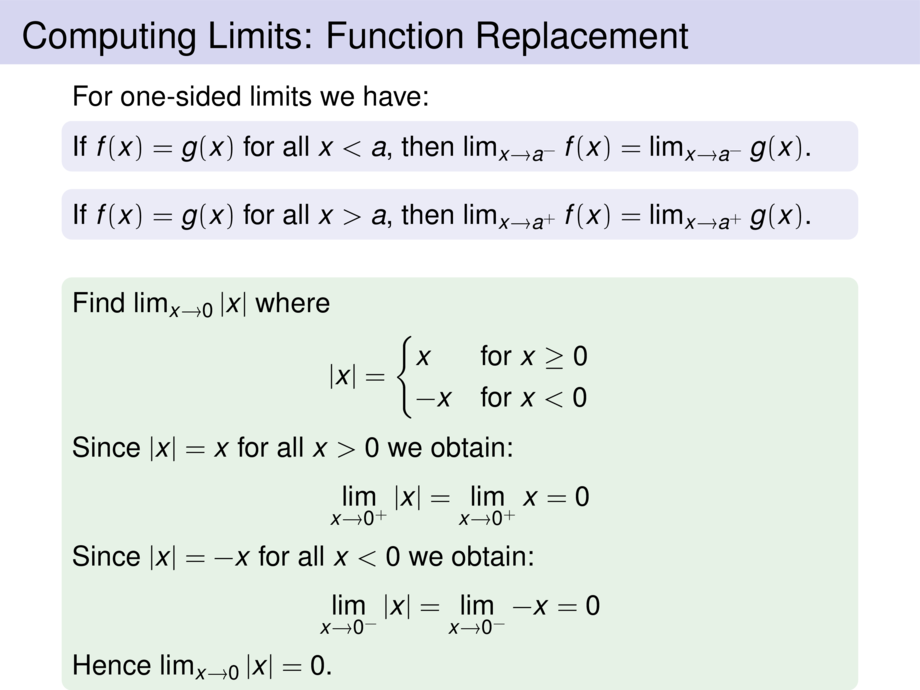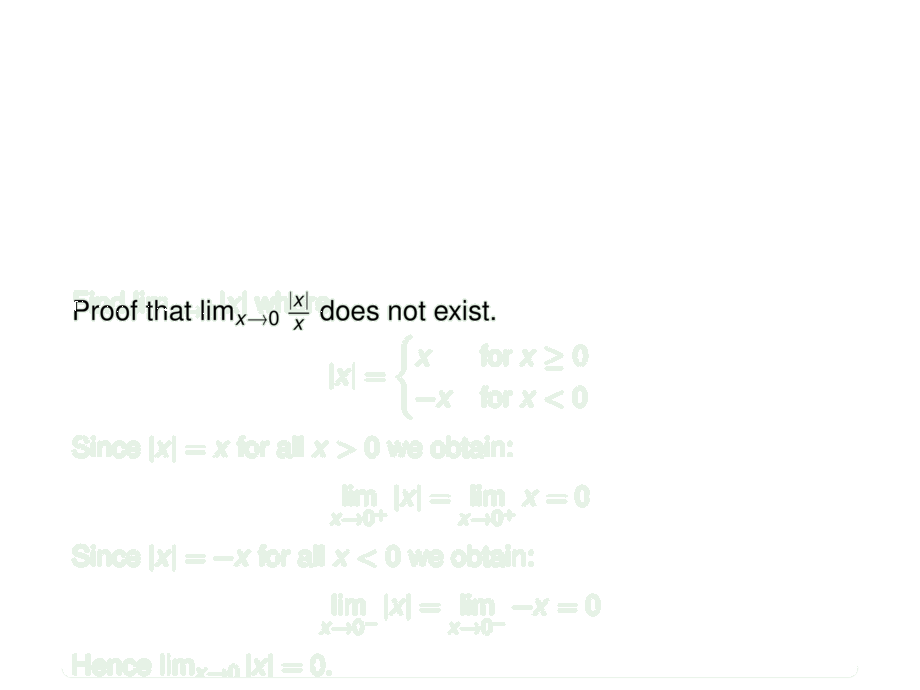



































































































116/145
\begin{frame}
\frametitle{Computing Limits: Function Replacement}
For one-sided limits we have:
\begin{block}{}
If $f(x) = g(x)$ for all $x < a$, then $\lim_{x \to a^-} f(x) = \lim_{x \to a^-} g(x)$.
\end{block}
\begin{block}{}
If $f(x) = g(x)$ for all $x > a$, then $\lim_{x \to a^+} f(x) = \lim_{x \to a^+} g(x)$.
\end{block}
\bigskip
\begin{exampleblock}{}
Proof that $\lim_{x\to 0} \frac{|x|}{x}$ does not exist.
\pause\bigskip
For all $x > 0$ we have $\frac{|x|}{x} \pause = \frac{x}{x}\pause = 1$. \pause Thus
\begin{talign}
\lim_{x\to 0^+} \frac{|x|}{x} = \lim_{x\to 0^+} 1 = 1
\end{talign}
\pause
For all $x < 0$ we have $\frac{|x|}{x} \pause = \frac{-x}{x}\pause = -1$. \pause Thus
\begin{talign}
\lim_{x\to 0^-} \frac{|x|}{x} = \lim_{x\to 0^-} -1 = -1
\end{talign}
\pause
Hence $\lim_{x\to 0} \frac{|x|}{x}$ does not exist since
$\lim_{x\to 0^-} \frac{|x|}{x} \ne \lim_{x\to 0^+} \frac{|x|}{x}$.
\end{exampleblock}
\vspace{10cm}
\end{frame}

